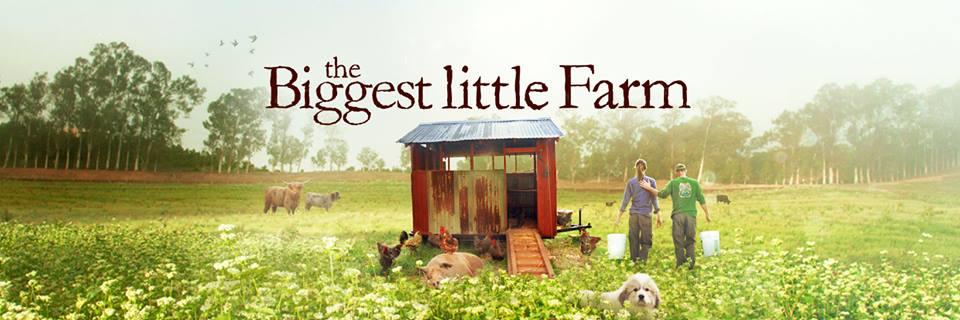Susan Granger’s review of “The Biggest Little Farm” (Neon/FarmLore Films)
This is a charming autobiographical documentary about an idealistic California couple who developed a sustainable farm on a 240-acre patch of depleted ground in Moorpark, located in Ventura County, 40 miles north of Los Angeles.
John and Molly Chester lived in a cramped apartment in Santa Monica; he was a TV director/wildlife cinematographer for “Animal Planet,” she was a pastry chef/food blogger. But they had a problem: their rescue dog, a black mutt named Todd, barked incessantly was he was left alone, so they were forced to move.
“Our love for that dog gave us this incredibly epic and magical existence,” they recall.
With the help of investors who shared their vision of a restorative agriculture model with its own self-perpetuating ecosystem, they bought Apricot Lane Farms, determined to become New Age pioneers.
Relying on the expertise of ‘guru’ Alan York, a visionary biodynamic consultant, they opt for complete diversification to rejuvenate the soil to create fertile ground – firm in their belief that when the farm and wildlife are in balance, there’s a solution to every dilemma.
As the narrative unfolds, the Chesters are coping with one problem after another. From cultivating worms to birthing piglets, they improvise. When leaf-eating snails ruin their fruit crop, they release the ducks. When flies accumulate in the cow manure, freeing the chickens takes care of it.
Still, there are hardships – like marauding coyotes, devastating drought and threatening wildfires which threaten their 200 different crops, 10,000 orchard trees bearing 75 varieties of fruit and vegetables, along with chickens, pigs, ducks and bees.
As Alan York puts it: “A comfortable level of disharmony” is the best you can hope for in this world.
“Eggs are the gateway to regenerative farming,” Molly maintains. “I didn’t want to make a film about climate change,” John adds. “I wanted to make a film about its consequences…It’s about the potential to integrate ourselves within a system that regenerates rather than depletes it.”
On the Granger Movie Gauge of 1 to 10, “The Biggest Little Farm” is an idealized, yet inspiring 8, an ode to the natural rhythms of life, death and regeneration.

